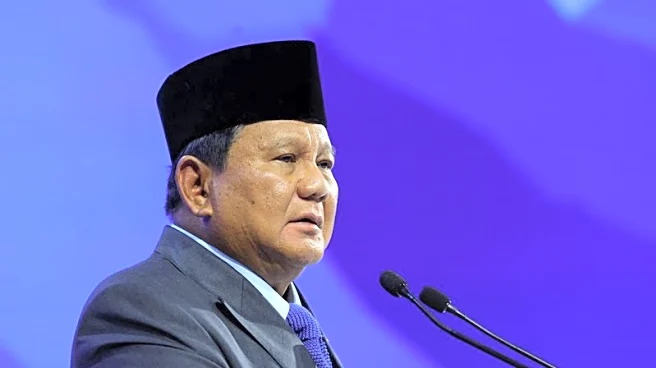What's Happening?
Rob Dannenberg, a former CIA station chief in Moscow, shared insights on President Trump's upcoming summit with Russian President Vladimir Putin in Budapest. The summit aims to address the ongoing war
in Ukraine. Dannenberg, who served two tours in Russia, emphasized the complexity of engaging with Putin, noting his background in espionage and manipulation. He expressed skepticism about Putin's willingness to compromise, citing recent interactions where Putin allegedly persuaded Trump to make concessions before negotiations. Dannenberg highlighted the importance of strength in dealing with Putin, suggesting that flattery is ineffective and perceived as weakness by the Russian leader.
Why It's Important?
The summit between President Trump and Putin holds significant implications for international relations and the conflict in Ukraine. Dannenberg's insights suggest that Putin's strategic manipulation could impact the outcome of negotiations, potentially affecting U.S. foreign policy and military support for Ukraine. The dynamics between Trump and Putin may influence global perceptions of U.S. leadership and its approach to international diplomacy. The discussion underscores the challenges of negotiating with Russia and the potential consequences for Ukraine's sovereignty and regional stability.
What's Next?
The upcoming summit in Budapest is expected to focus on the war in Ukraine, with President Trump seeking to end the conflict. However, Dannenberg's analysis suggests that Putin may not be inclined to make concessions. The outcome of the summit could shape future U.S.-Russia relations and impact ongoing diplomatic efforts. Observers will be watching for any shifts in U.S. policy or military support for Ukraine, as well as potential reactions from European allies and other international stakeholders.
Beyond the Headlines
Dannenberg's comments highlight the broader implications of espionage and manipulation in international diplomacy. The discussion raises ethical questions about the use of intelligence and personal information in negotiations. It also reflects the complexities of engaging with authoritarian leaders and the importance of strategic strength in diplomatic interactions. The summit may serve as a case study in the effectiveness of different negotiation tactics and the role of personal dynamics in shaping international relations.









